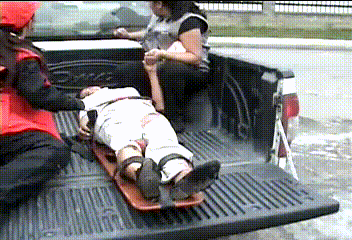Robert 1973
Senior Member (Voting Rights)
This is the exact quote from the above 1989 discussion paper:
“Many sufferers have been told that 'physical and mental exertion is to be avoided' (ME Action Cam- paign factshet, 198).This may be correct in some cases, but there is as yet no way that these cases can be identified.”
There are some other remarkable statements in this paper.
In the section titled “Sickness Benefits” Simon Wessely et al write:
“At present individual cases should be treated on their merits, but it is reasonable to expect a patient to cooperate with treatment before being labelled as chronically disabled”
In other words, this paper seems to be saying that ME patients should be subjected to treatments, which the authors concede may be harmful, before they can be labelled as chronically disabled, and therefore entitled to benefits and disability aids. That is an astonishing admission.
It also appears to contradict what Simon Wessely himself referred to as the “core principles of the law and medical eithics” in his 2015 op-Ed article in the Guardian (https://www.theguardian.com/comment...-people-mental-health-problems-work-treatment):
“Threatening to remove benefits if people do not agree to treatment puts doctors (and indeed all health professionals) in conflict with core principles of the law and medical ethics. Furthermore, it could have serious unintended consequences.
Linking benefits to treatment sounds suspiciously like a coercive measure to “incentivise” people who would not otherwise have had treatment to accept it. And if so, it is legally problematic. The people affected by this policy may turn up to receive the treatment in question and therefore seem to be consenting to it. But consent to treatment must be free from undue influence, otherwise it is legally meaningless.”
At the end the discussion paper Simon Wessely et al state:
And yet, they appear to advocate coercing patients into trying their treatments, which they admit are both unproven and potentially harmful.“Patients may be subjected to such methods as total exclusion diets, colonic lavages, chronic antibiotic therapy and removal of dental filings. Some of these are potentially dangerous, such as severe purgation which can lead to hypokalaemia. It is a doctor's duty to protect the patient from such exploitation, which may be medically and financially harmful. The willingness to try such untested treatments should be viewed as a reflection of the patients desperate need for help.”
[Edited to correct typo.]
Last edited:


